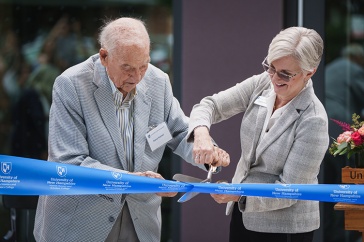Full integration of the University of New Hampshire School of Law with UNH will soon be underway after governing bodies for both institutions recently voted unanimously to begin the process. The integration is expected to be complete early in 2014.
The University System of New Hampshire Board of Trustees voted Friday, Feb. 1, 2013. The UNH School of Law Board of Trustees voted Friday, Jan. 25, to fully integrate the law school with UNH. When the two institutions approved an affiliation agreement in 2010 it was with the understanding that integration was the likely next step if the expected benefits of affiliation were realized. The affiliation agreement stipulated that a motion for integration could first be considered on or after Jan. 1, 2013.
“The affiliation agreement allowed us to begin exploring ways we could build upon the respective strengths of both institutions. We’ve forged fruitful research collaborations, launched dual degree programs, and leveraged the law school’s strength in intellectual property with our Office of Research Partnerships and Commercialization. Full integration will propel us further still,” UNH President Mark Huddleston said. “We’re excited to keep the momentum going.”
In less than three years two joint programs, a dual JD/MBA and a dual JD/master’s in social work, have been launched. In addition, there have been faculty exchanges and other educational programs that pair the law school’s historic leadership, especially in intellectual property law, with the research being conducted at UNH.
When the integration is complete the primary location of the School of Law will still be in Concord, expanding the university’s presence in the state capital. All faculty and staff will become USNH employees, and a number of efficiencies are expected to be realized.
“This is a historic day for the UNH School of Law,” UNH Law Dean John Broderick said. “Together, the university and the law school will create opportunities for teaching, learning, and research that will make each institution stronger and better positioned to create the leaders of tomorrow.”
Originally published by:
UNH Today
















































